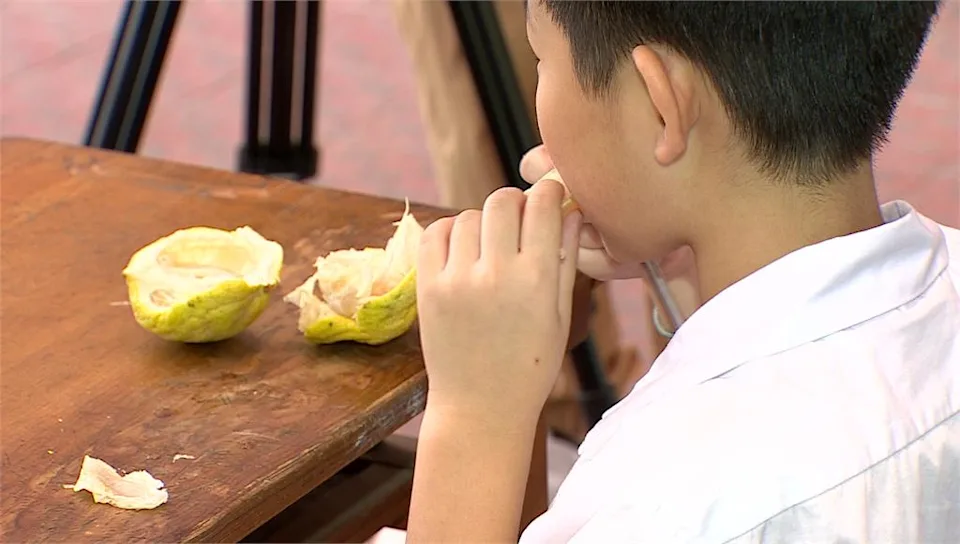However, many parents focus solely on the main dishes of lunch and overlook the importance of fruits and snacks, which are essential components of a balanced diet.
A recent case from a Chinese mother highlights this issue, offering valuable insights for parents everywhere.
The mother shared a photo on social media of five passion fruits with a humorous caption: “My fridge is overflowing with passion fruits. I have no idea what to do with them—I might start selling them soon.”

Watch Video: The Stressful School Lunch Experience of Elementary Students That Worries Parents
Upon inquiry, the mother revealed that her child attends elementary school and is enrolled in the school’s lunch program.
Daily, when her child returns home, she asks about lunch, and the child consistently praises the school meals as both delicious and plentiful.
However, it wasn’t until she noticed the pile of passion fruits in the fridge that she realized her child had been bringing one home every day from the school lunch.
The child explained that while passion fruits were part of the school lunch, they were served whole, leaving the children unsure how to eat them and thus bringing them home.
This revelation frustrated the mother, who felt the school’s approach to providing lunch was irresponsible. She plans to meet with the principal to express her concerns.
After the post went viral, many mothers shared similar experiences. “Finally, I understand why passion fruits keep appearing in my fridge,” “Same here. My three kids bring passion fruits home regularly.”
“Sure, serving passion fruits regularly is fine, but if the kids don’t eat them, it’s pointless,” “My elementary schoolers have no idea how to eat passion fruits. They always bring them home, and they end up spoiling.”
Others humorously suggested ways for the mother to use the surplus passion fruits.
This issue has troubled many parents. Another mother from a Taipei elementary school complained about her child receiving a whole grapefruit for lunch.

The grapefruit, though small, was still challenging for young children to handle during the short lunch period.
As a result, her child brought the grapefruit home for dinner. The mother felt the school’s approach was impractical.
During their school years, children often face various challenges. It’s crucial for parents to encourage them to seek help from teachers. For instance, if a child struggles with lunch fruits, parents should urge them to communicate with cafeteria staff or teachers.
When children learn to communicate and seek support, they gain confidence in handling difficulties, knowing they’re not alone. This fosters communication skills and creates a supportive learning environment.
Beyond encouraging children to seek help, parents should proactively engage with schools about their child’s issues. If a child shows signs of anxiety or unhappiness at school, parents should investigate and discuss concerns with teachers or counselors.
Open dialogue between parents and schools strengthens collaboration, ensuring comprehensive child development. Parents must create a supportive environment where children feel secure and encouraged.
Regularly discussing school experiences, from food preferences to social interactions, helps children feel comfortable sharing. This nurtures problem-solving skills and emotional and social growth.
6 Brain-Damaging Foods: How Your Child’s Daily Diet May Be Harming Their IQ
“Parents, take note! Experts advise caution when it comes to these six foods for toddlers. While a varied diet is essential for growing children, overconsumption of these particular foods may pose potential risks to their developing brains. Read on to discover which foods to moderate and ensure a healthy, balanced diet for your little ones.”





































